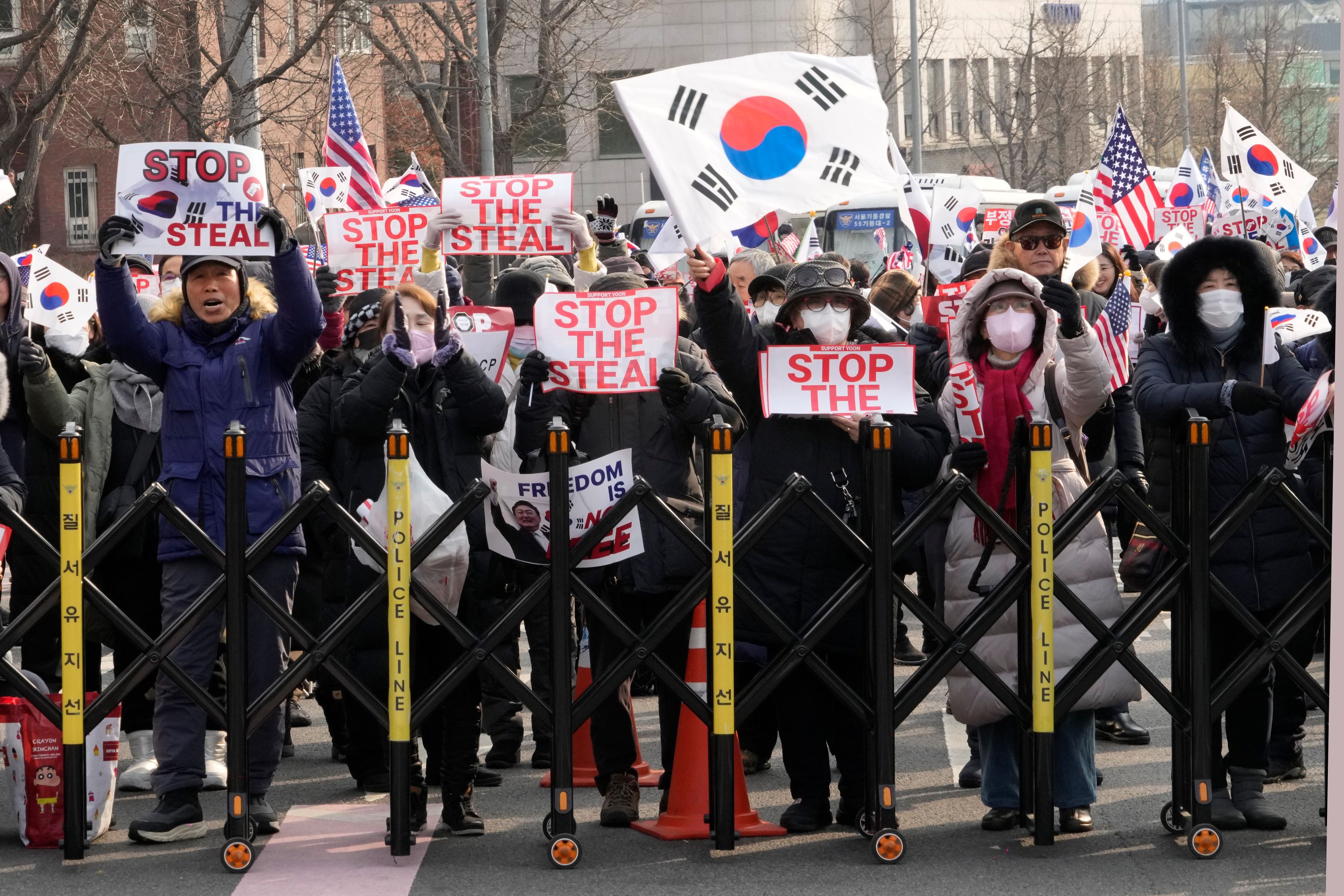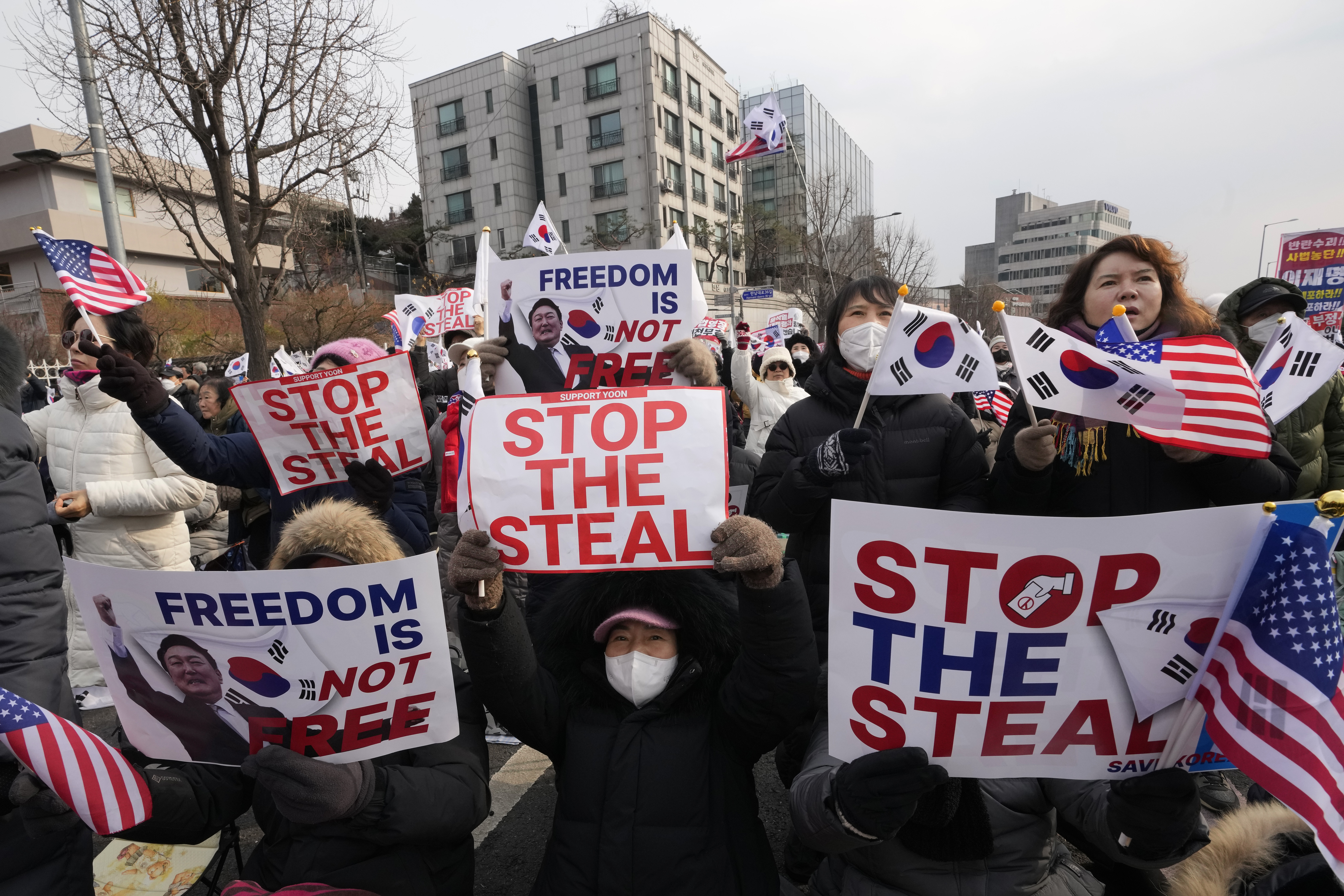
SEOUL - South Korean President Yoon Suk-yeol will accept the decision of the Constitutional Court that is trying parliament's impeachment case against him, even if it decides to remove the suspended leader from office, his lawyer said on Thursday.
"So if the decision is 'removal', it cannot but be accepted," Yoon's lawyer Yoon Kab-keun told a news conference.
Rulings by the court, one of the two highest courts in the country along with the Supreme Court, cannot be appealed.
Yoon has earlier ignored the Constitutional Court's requests to submit legal briefs before the court began its hearing on Dec 27, but his lawyers have said he was willing to appear in person to argue his case.
The suspended president has defied repeated summons in a separate criminal investigation into allegations he masterminded insurrection with his Dec 3 martial law bid, which led to the first arrest warrant issued for a sitting president.
Yoon's lawyer said the president was currently at his official residence in Seoul and appeared healthy.
ALSO READ: South Korea's Yoon faces new arrest attempt in fortified compound
Presidential security guards resisted an initial effort to arrest Yoon last week, though he faces another attempt after a top investigator vowed to do whatever it takes to break a security blockade and take in Yoon.
Seok Dong-hyeon, another lawyer advising Yoon, said Yoon viewed the attempts to arrest him as politically motivated and aimed at humiliating him by publicly displaying him in handcuffs. He cited media reports that the police planned to deploy armored vehicles and helicopters to drop special police units into the presidential compounds in a push to arrest Yoon.
Seok said Yoon and his advisers view the unfolding situation as a war of ideology between those committed to a free democracy and those who are against it.
"If something goes wrong, what we're saying is that it could become civil war," said Seok.
READ MORE: S. Korea's court re-issues warrant to arrest President Yoon
Yoon has said he declared martial law to clear out "anti-state" forces that were paralyzing government functions and threatening democracy.
On Tuesday, the head of the Corruption Investigation Office for High-ranking Officials (CIO), which is leading the investigation, apologized for failing to arrest Yoon after a standoff with hundreds of Presidential Security Service (PSS) agents, some carrying firearms, and military guards.
Oh did not object when members of parliament called for tough action to overpower Yoon's security, but he declined to discuss what options were being considered.
Lawyer Yoon has said the president's arrest warrant was illegal as it was issued by a court in the wrong jurisdiction and the CIO had no mandate to investigate a sitting president for insurrection. Instead, the prosecutors should indict Yoon if there was evidence or request a formal detention warrant and then Yoon would cooperate.

Hundreds of protesters both supporting Yoon and calling for his arrest have braved freezing temperatures in recent days to rally outside his residence. On Thursday, the number had dwindled as temperatures fell below minus 10 degrees Celsius to the lowest recorded this winter.
Lawyer Yoon said the president felt concerned about the well-being of his supporters rallying outside the residence.
"As you know, the weather is really cold these days, and it isn't going to be over in a short time. They are doing it all day long, even late at night, so he (the president) feels very sorry and thankful," the lawyer said.
Also on Thursday, six opposition parties, including the main liberal Democratic Party, submitted a bill to appoint a special counsel and investigate Yoon's insurrection charge.
The parties proposed the bill to the National Assembly after the first bill was scrapped in a revote in the previous day as most of the 108 ruling conservative People Power Party voted against it.
ALSO READ: Blinken confident in S. Korea democratic process as Yoon faces arrest
Under the second bill, two candidates for independent council will be recommended by the chief justice of the Supreme Court, while the number of dispatched prosecutors and investigators and the investigation period will be cut to 155 and 150 days compared to the first bill.


